
le 31 octobre au 4 novembre 2022
Upcoming Dates
- Monday, October 31 – Halloween parade (8:40). Parents may visit and view from the courtyard outside the 2nd grade classroom near the office.
- Wednesday and Thursday, November 8-9: Parent/Teacher conferences (8-8, then 8-12)
- Friday, November 10: NO SCHOOL (Veterans Day)
- Thursday and Friday, November 24-25: NO SCHOOL (Thanksgiving)
Halloween:
Please follow these rules:
- If students are going to wear a costume, they must wear it to school. Students will not be permitted to change at school. Students must be able to wear their costumes inside or outside, at recess, at gym, etc.
- No masks or full face painting will be allowed. However students can have “limited” makeup like whiskers, freckles, eye makeup, etc.
- Costumes must not be too scary or inappropriate for the school environment. Please no gory or grotesque costumes.
- No props are allowed. (no swords, weapons, wands, etc)
- The school is not responsible for costumes that are torn or damaged while at school. Parents are encouraged to remember that students at school can be very physical during recess and gym.
- It often rains in Oregon on Halloween. Don’t forget that students go outside at recess, rain or sunshine.
- Students must wear shoes that are appropriate for school. No heels, no slippers, and no flip-flops.
- Students who come to school wearing something inappropriate will have to call home for new clothing or remain in the office.
- Costumes should not interfere with the ability of a student to go to the bathroom by themselves.
- Even in costume, Charlemagne Elementary School students are expected to be safe, respectful, and responsible self-managers.
What’s up! Quoi de neuf?
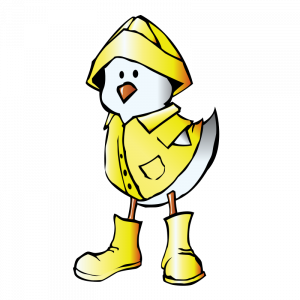 Please make sure to send your child to school in proper footwear and a water-repellent jacket when the weather is threatening. Students will go out to recess unless the principal decides that the weather or air quality prevents it. If your child is ill, or has had a fever or vomited within the previous 24 hours, please keep her/him home. Please continue to follow current Covid rules as well. If your child will be absent, please email both teachers (kincaid_j@4j.lane.edu and hopper_s@4j.lane.edu) and Bernadette (conover_b@4j.lane.edu) or please call in and leave a message on the school line (541) 790-7080.
Please make sure to send your child to school in proper footwear and a water-repellent jacket when the weather is threatening. Students will go out to recess unless the principal decides that the weather or air quality prevents it. If your child is ill, or has had a fever or vomited within the previous 24 hours, please keep her/him home. Please continue to follow current Covid rules as well. If your child will be absent, please email both teachers (kincaid_j@4j.lane.edu and hopper_s@4j.lane.edu) and Bernadette (conover_b@4j.lane.edu) or please call in and leave a message on the school line (541) 790-7080.
Also, please remember to send a snack! It is recommended to students that they put a snack in their backpack with their homework folder every evening, then put the backpack next to the door from which they leave.
Le français:

•We do our best to express ourselves in French.
•We write four solid sentences, with structure, to describe a photo.
•We have a positive attitude and growth mindset.
•We conjugate regular and irregular verbs in the present tense and use them appropriately in our writing and speaking.
Well, we are meant to begin speaking French only on November 1, but I have not been sure if these fourth graders are ready. I’ve also heard from a few sources that kids are very nervous about beginning French-only. So, I did a survey of students on Friday. Here is a link to the results: https://docs.google.com/document/d/1xRlyIIjg5_PXu1oQhYRaNoP_as1ySuIBRaElu6hbZO0/edit?usp=sharing. Essentially, 90% of students say they always or almost always understand what I’m saying. Sixty-seven percent of students think the French work is at the right challenge level. Fifty-six percent of students think their French is a four or a five on a 1-5 scale. Another 30% think they are a 3. Seventy-nine percent of students feel mostly to absolutely prepared to start speaking French on November 1. Of those students who don’t feel prepared to start speaking French on November 1, over half feel they would be prepared by November 10. Based on this data, I think we will begin speaking French exclusively on November 1, but the dommages for speaking English three times during a half-day of French won’t begin for another two weeks. We’ll also ramp up discussions about what to do when you don’t know how to say what you want to say…without breaking into English. It is stressful for some kids, believe me I’ve been through it myself, but it makes a huge difference in their confidence in speaking French, which I think this group can use based on the survey results.
We began uppercase (majuscule) letters with ACOUV & W, and I’m making each student his/her/their own first and last name for tracing.
The French homework this week is ten words that we use often, but also often misspell. Here is a copy of the homework: mots variés oct 2022 l Vocab pdf
This coming week, we’ll conjugate verbs ending in –er (90% of verbs), then pouvoir (to be able), vouloir (to want), mettre (to put or place), prendre (to take), tenir (to hold) and venir (to come).
 Many students have completed their second “J’observe” writing activity, writing four sentences independently (with sentence starters) to describe the photo to the left, Le chien aux yeux exorbités (The bug-eyed dog), and I hope we’ll be able to begin the third writing activity this week.
Many students have completed their second “J’observe” writing activity, writing four sentences independently (with sentence starters) to describe the photo to the left, Le chien aux yeux exorbités (The bug-eyed dog), and I hope we’ll be able to begin the third writing activity this week.
We will begin reading and phonics instruction this week.! I will do reading groups, and Lisa will do phonics instruction at the same time with a different group. Other groups will work on grammar and word work.
Students had some time to work on the “Moi!” project which is all about them… in French. Many students have completed their art, and many more are in the midst of writing their paragraphs in cursive. Students are at a number of different points in the project. A few students have completed the project already, and they are hanging in the stairwell that leads down to our level. A couple of students have completed their “Tubes” art project, which we’ve begun to hang in our classroom.
 Les sciences:
Les sciences:
We began our chemical weathering (l’usure chimique) experiment. Each group got to observe what happened when vinegar (le vinaigre) was added to four different kinds of stones, basalt (le basalte), marble (le marbre), limestone (le calcaire), and sandstone (le grès). They were meant to look for signs of a chemical reaction (une réaction chimique) between the stones and the vinegar. Next, we’ll dump the vinegar and stones into our little science trays, examine them for differences, and see what happens as the vinegar evaporates. We’ll be linking up to a social studies project on Oregon in English class and learning French vocabulary words for landforms.

Mme Shelli, English & Math
hopper_s@4j.lane.edu
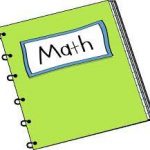
We continue the unit Multiplication and Division Strategies of Multi-digit Numbers. Here are some key concepts of the this unit:
1. Place value understanding allows us to multiply and divide multi-digit numbers in different ways.
2. We can model multiplication and division using a visual, area model.
This week we will use multiplication to solve problems involving multiplicative comparison as well as equal groups. Students will be building and illustrating large arrays to represent multiplication of larger, two and three digit numbers. The goal of this process, is to build on the CONCEPT of multiplication, not necessarily to be fast and efficient with standard algorithm yet. See more in last week’s blog entry about the goals in 4th grade. For illustration, here are a few video of teachers showing some strategies for understanding larger digit multiplication: Video 1 Video 2. Video 3
NO math homework. Ask your child to see their basic facts quiz of x1 through x10. They had 10 minutes to complete the quiz. It was sent home last Thursday. Most students need to continue to practice through games or flash cards facts of x6, x 7, x8, x9.
Math Games for home See the Math tab above
 English & Social Studies:
English & Social Studies:
We did quite a bit of mapping and a bit of reading about Oregon’s regions last week. This week, students will read another text about Oregon’s regions and will share their learning with the class. They will then write short descriptive paragraphs about each of Oregon’s regions.
Later in the week, we’ll continue our discussion about Oregon’s indigenous people. This unit, while focusing on writing and reading skills, integrates the Geography and Historical Knowledge understandings in Oregon’s 4th grade Social Studies standards. You can find these online here.
Guest Speaker:
Thursday, November 3, we’ll be learning about our National Parks. A representative from the organization Every Kid Outdoors will come share in English class about free National Park passes for all 4th graders.
THANK YOU to parents who chaperoned our first field trip to Alton Baker Park! We will try to get some photos uploaded here soon.

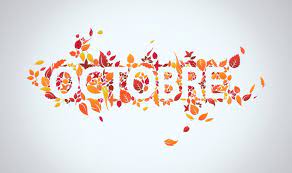
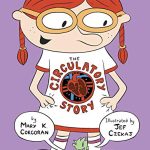
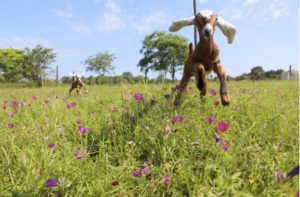
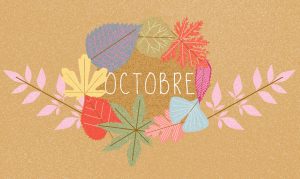
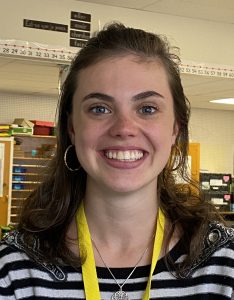 We are delighted and so lucky to present our French Amity intern, Lisa Himpens, who will be working in 4th and 5th grades this year. She joins us from the region of Picardie in the north of France. This is her first experience in the United States, and we encourage families to include her (and our other intern in 2nd & 3rd, Laurine) on an excursion somewhere in Oregon. Or maybe invite them to visit the coast with you, go on a hike, or invite them to a homemade dinner or a local dinner out? If you’re interested, please reach out to Mme Jana or Mme Shelli via email, and we will put you in contact with Lisa. Merci!
We are delighted and so lucky to present our French Amity intern, Lisa Himpens, who will be working in 4th and 5th grades this year. She joins us from the region of Picardie in the north of France. This is her first experience in the United States, and we encourage families to include her (and our other intern in 2nd & 3rd, Laurine) on an excursion somewhere in Oregon. Or maybe invite them to visit the coast with you, go on a hike, or invite them to a homemade dinner or a local dinner out? If you’re interested, please reach out to Mme Jana or Mme Shelli via email, and we will put you in contact with Lisa. Merci!